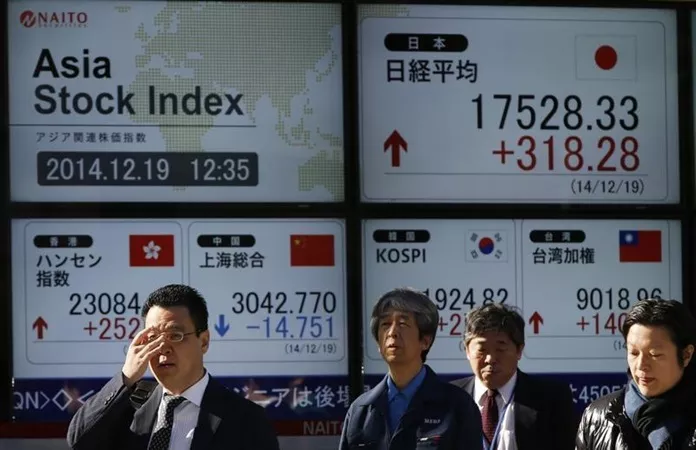Asian stock markets showed mixed results on Monday in a session marked by lower trading volumes due to the Easter holiday. Chinese equities saw modest gains after the country’s central bank, the People’s Bank of China (PBoC), kept its loan prime rates unchanged. Meanwhile, Japanese stocks dropped following stronger-than-expected inflation data.
Markets in Australia, New Zealand, and Hong Kong were closed for the Easter break, resulting in less market activity and subdued price movements across the region.
U.S. stock markets ended last week with losses, and futures tied to major U.S. indexes also opened lower in Asia on Monday.
In a move that aligned with market expectations, the PBoC held its one-year loan prime rate (LPR) steady at 3.1%. The five-year LPR, which influences mortgage rates, was kept at 3.6%. The decision highlighted Beijing’s focus on stimulating growth through fiscal measures rather than additional monetary easing.
The Chinese government has recently proposed new measures to boost consumer spending, such as enhanced social welfare programs and subsidies for household goods.
In response to these moves, the Shanghai Composite rose 0.3%, while the Shanghai Shenzhen CSI 300 gained 0.2%.
Japan’s stock market was hit by inflation data showing a 3.2% year-over-year rise in the core consumer price index (CPI) for March, higher than the 3.0% rise in February. The core CPI, excluding both fresh food and energy prices, increased by 2.9%, up from 2.6% the previous month. This data remains well above the Bank of Japan’s 2% annual inflation target.
Despite rising inflation, analysts have pushed back their forecast for a potential rate hike from May to July, partly due to uncertainties regarding U.S. tariff policies. As a result, Japan’s Nikkei 225 index fell by 1.2%, while the TOPIX index declined 1.1%.
Global trade uncertainties, particularly U.S. President Donald Trump’s tariffs, continued to weigh on investor sentiment. Tensions between the U.S. and China remain high, though there were reports last week that China was open to trade talks with the Trump administration, provided the White House shows more respect in its approach. Additionally, Trump indicated that “big progress” had been made in his meeting with a Japanese trade delegation.
These developments helped ease some concerns, though caution still lingers among investors.
In other Asian markets, South Korea’s KOSPI ended flat, Thailand’s SET Index dropped by 0.4%, and Singapore’s Straits Times Index gained 1%. Meanwhile, India’s Nifty 50 futures were 0.4% higher.
Related Topics:


